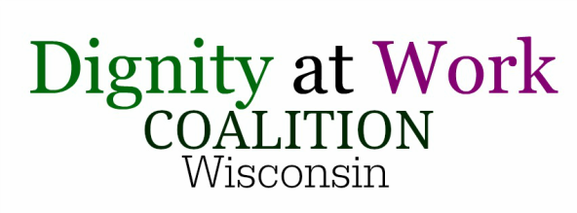Paid Sick Days
The Issue
For many workers in Wisconsin, choosing to take a day off of work if they are sick or to care for a sick family member means forfeiting a day’s pay and sometimes even their job, as Wisconsin law does not guarantee employees any “paid sick days.” Approximately 36% of American workers don’t have access to a single paid sick day. An even higher percentage (45.5%) of Wisconsin workers are without paid sick days. This is especially problematic for the individuals least likely to receive paid sick days, such as those who work in small businesses or in low paying jobs.
|
Paid sick days are important for much more than just recovering from illness-- they also cover days needed for wellness checkups for parents and children, as well as other routine health appointments. Sick days also benefit employers and the general public by reducing exposure to illness for both fellow employees and the general public. Paid sick days are also linked to higher productivity and lower turnover rates as well as lower overall costs of providing health insurance for employees.
In focus groups conducted by the Wisconsin Alliance for Women’s Health and 9to5 Wisconsin, women from multiple age groups indicated that paid sick days would significantly improve their quality of life and their families’ wellbeing. The participants expressed a strong need for some workplace flexibility in order to respond to life’s many unexpected caregiving challenges, for which most of these women were solely responsible within their families. |
Wisconsin has already attempted to address the lack of paid sick days, but with little success. Voters in Milwaukee passed a paid sick leave ordinance that would mandate local employers provide workers with paid sick days, but the ordinance was voided by a state bill that preempted local ordinances that provide private-sector employees with paid time off.
What Wisconsin Can Do
Most states, including Wisconsin, do not have regulations in place to mandate paid sick days. In 2016, legislation was introduced that would provide private sector workers with paid sick days under state law. Though the bill did not pass, theprovisions of this bill serve as a great framework for future legislative action. Under the bill, employees would be able to earn up to nine sick days annually depending on how many hours they work during the year. The bill would also provide job protections to ensure that workers could use paid sick days without the risk of losing their jobs. Workers would be able to use the days for a number of qualifying events, including to recover from an illness, to care for an ill family member, or to recover from the trauma stemming from domestic or sexual violence. For more information on the bill’s details, see the detailed paid sick days issue brief contained in the compendium to this report.
How Can You Help?
- Call or email your legislators and urge them to support paid sick days legislation.
- Connect with organizations working to make paid sick days a reality in Wisconsin, such as9to5Wisconsin.
Adapted from http://www.supportwomenshealth.org/

